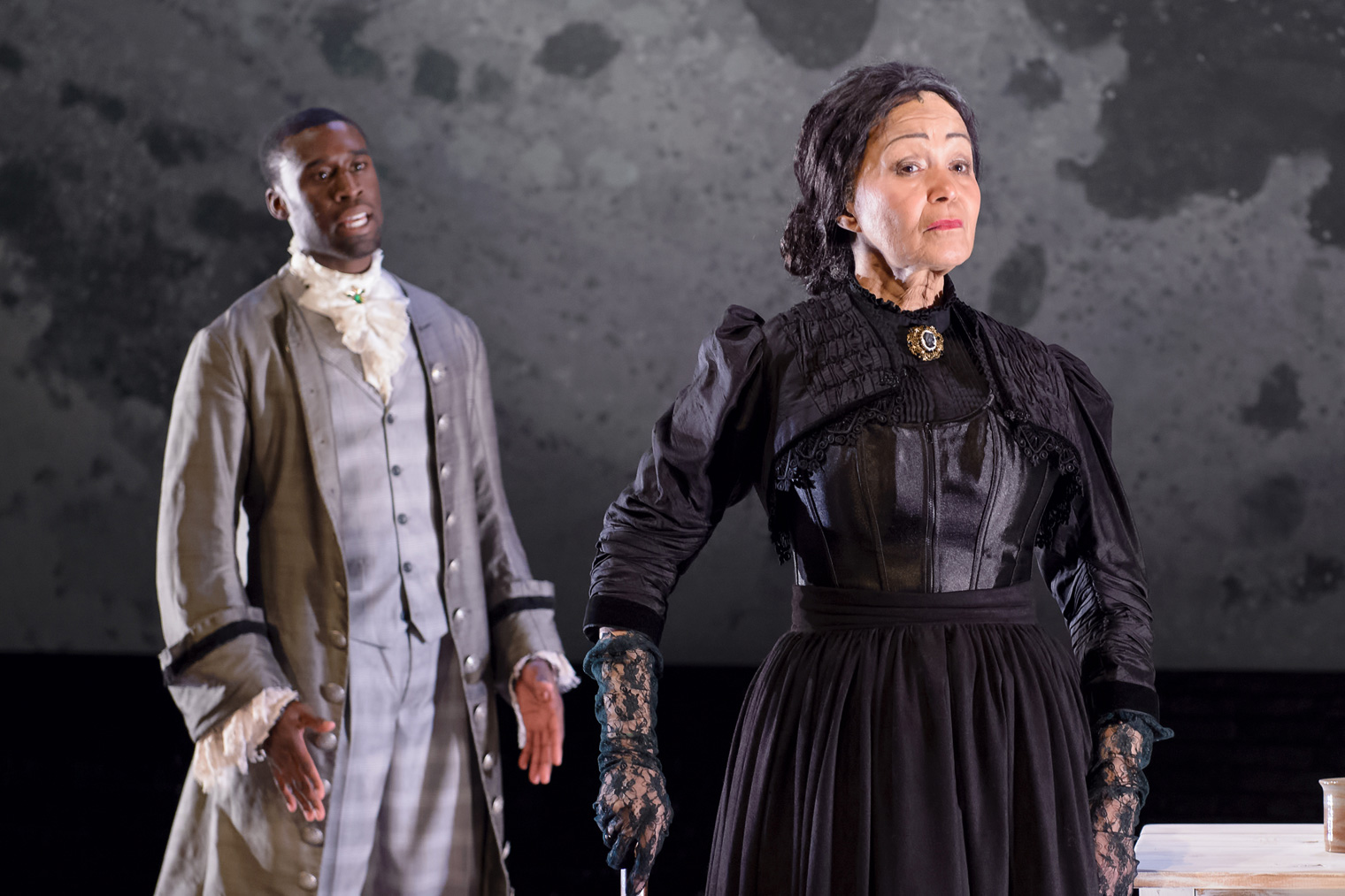The term “political theater” has a certain “eat-your-vegetables” ring to it, suggesting soapbox sermons and dour social realism. Frothy escapist fare and revivals of tried-and-true classics are generally safer bets at the box office. A new play confronting society’s ills can be challenging or upsetting for audiences, who might stay away lest they get bummed out—and producing one suddenly becomes an expensive risk.
But that "audiences won't like it" attitude hasn't stood in the way of three Chicago theater houses engaging with contemporary issues in America with new productions this spring. Though all of them qualify as political theater, each takes a vastly different approach, illustrating the wide range of options available to companies interested in exploring similar subjects. One thing they do have in common: a preference for asking questions instead of imposing answers.
The most straightforward of the bunch in format is probably American Theater Company’s The Project(s), a documentary play by PJ Paparelli and Joshua Jaeger, who aim to tell the long, fraught story of public housing in Chicago, from the hopeful days of construction, starting in the 1930s, to the recent demolition of high-rise developments after decades of decay, violence, and official neglect. Performed by a cast of eight, the script is derived entirely from hundreds of interviews the authors conducted over the last five years with current and former public housing residents as well as historians, urban planners, and others (the show opens at ATC on April 28).
“What we wanted to do was try to present all perspectives of this issue over time,” says Paparelli, who also directs the show, “and look at all the decisions that were made, both good and bad, and look at what the overall issue is that we keep struggling with. What it comes down to is what, ultimately, is our country’s responsibility to its poor?”
The documentary approach is a favorite of Paparelli’s. His most well known work, Columbinus (written with Stephen Karam), applies the same methods to investigating the 1999 shootings at Columbine High School. For him, using the real words of those affected supplies an authenticity and urgency that make empathy possible. “You can’t go, ‘Oh well, this is just a play,’” he says. “You go, ‘Wow, somebody actually said that about something that really happened to them.’ You can’t dismiss it.”
On the other end of the spectrum—completely made-up characters and dialogue—is Richard Nelson’s four Apple Family plays, which explore current American politics through the prism of one brainy, opinionated family in Rhinebeck, New York. Two of the plays, That Hopey Changey Thing and Sorry, recently made their Chicago debuts in a sensitive, intelligent, and beautifully acted repertory production at TimeLine Theatre Company (they closed last week).
Both plays took place on Election Day—Hopey Changey in 2010, Sorry in 2012. In today’s theater, where the development process is often maddeningly drawn out in workshop after workshop, that pretty much counts as ripped from the headlines. So right away, the Apples' living-room debates had a leg up, immediacy-wise, on nearly everything else onstage at the time. To see fictional characters talking about Barack Obama and Sarah Palin felt strangely bracing and depressingly rare.
Nelson transcended the red-faced political arguments familiar from cable news, suggesting instead the sort of everyday longing and fumbling we find in Chekhov, whose Three Sisters and The Cherry Orchard were obvious influences. When the liberal Apples say they’re disappointed in Obama, it feels like an aching expression of a failure to live up to their own ideals and possibilities.
Playwright Marcus Gardley also goes the fictional route in his ambitious new drama, An Issue of Blood, now onstage at Victory Gardens Theater under the direction of artistic director Chay Yew. Though Gardley clearly intends, like Nelson, to comment on the present, his play is set in the distant past.
An Issue of Blood had an even faster turnaround time than the Apple Family plays; Gardley only began writing it in December. Victory Gardens had announced it would be staging another Gardley piece, A Wonder in My Soul, but the playwright became blocked midway through his second draft, mostly because he couldn’t stop thinking about the protests in Ferguson, Missouri, and elsewhere in response to the killings of unarmed black men by police.
Rather than depicting such events directly (as in a previous Gardley play, The Gospel of Lovingkindness, which deals with gun violence in modern-day Chicago), An Issue of Blood unfolds around the time of Bacon’s Rebellion in 1676, when a motley assortment of Virginia settlers—including aggrieved farmers and indentured servants—took up arms against the ruling elite, reducing Jamestown to cinders and hardening the case for institutional slavery.
Though the play resists drawing easy parallels with the past—leaving room for complexity and the notion of tragic inevitability—Gardley argues that “we have to know where we came from to move forward.” He wanted to look not only at the foundation of laws based on race, but also investigate the purpose and efficacy of protest.
“After Ferguson,” he told me, “a lot of people were saying the protesters don’t have a mission, they don’t have an end goal, so they’re marching in the streets for naught. But if you actually talk to them, they’re saying, ‘The fact that we’re out here is the mission: we want to be heard.’ So what have we learned in 300 years of protests? What can be gained when people unite from all walks of life? Who is listening and what are we saying?”
An Issue of Blood runs through May 3 at Victory Gardens Biograph Theater, 2433 N. Lincoln. For more information, go to victorygardens.org.
The Project(s) runs April 28–May 25 at American Theater Company, 1909 W. Byron. For more information, go to atcweb.org.



